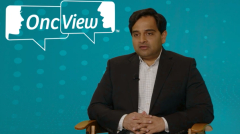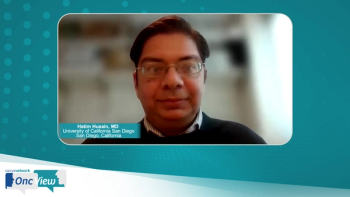
The Future of Treatment for Patients with MDS
Dr. Daver anticipates how the MDS landscape will evolve over time, emphasizing the importance of adopting targeted therapies.
Dr. Naval Daver: High risk frontline MDS, remains one of the subtypes of leukemia in which unfortunately we have not had the success and breakthroughs that we are seeing in other leukemias like CLL, CML, AML, ALL, I think it's a matter of time. A lot of the molecular understanding the immune profiling is now leading to more targeted and specific combinations and therapies. the near-term hope is drugs like magrolimab with Azacitidine BCL2 inhibitor Venetoclax with Azacitidine novel immune therapies that target the TIM3 immune checkpoint with Azacitidine will improve the survival. All of these are currently in ongoing phase 3s that we hope to hear the results in the next one, one and a half year, and hopefully will at least improve our current frontline from beyond the single agent HMA to novel combination with better response and survival. I think in more long-term, we are starting to strip away different molecular subsets of MDS like we did in AML about 10 years ago. So we're now looking for mutations, IDH1, IDH3, FLT3, MLL, NPM1, and we are borrowing the targeted therapies that are approved in AML, in MDS. And some of the recent data shows that this actually is a very effective approach. So I think just like in AML in the next 10 years, we will see that MDS is no longer considered as one homogeneous disease, but is going to be a molecular targeted specific personalized therapy approach. And then eventually I think immunotherapy cellular therapy is probably going to be very important. This is still probably five to 10 years away, but given the success is ALL, CLL, multiple myeloma lymphoma, this is probably going to be the next major approach. And it's being heavily looked at in research in both AML and MDS.
Newsletter
Stay up to date on recent advances in the multidisciplinary approach to cancer.

































